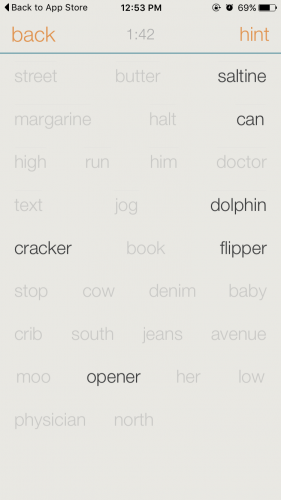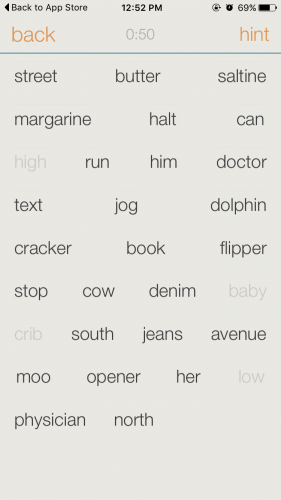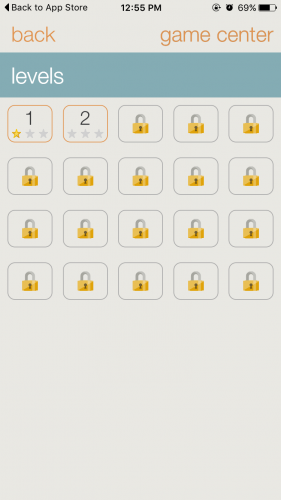Word Association: A fun vocabulary app!
Sebah Al-AliOne strategy to learn new words is to associate them with words we already know. And there is a nice iOS game for that: Word Association (link). The game lets you complete packs. In each pack, you have several levels/puzzles to be completed. The two packs are the only free options; you’ll need to pay for more packs. For each puzzle, you’re given a set of words. You need to press on two connected/associated words for them to go away. And you’re timed. The faster you finish, the more stars you get. And, you can replay a puzzle if you want.
(click on a picture to enlarge it)
The game could be a good learning technique to help students see the value of connecting similar words. As far as I can see, puzzles are identical for all users. So, one way to use it in class is probably present some of the words in a puzzle for your students first. Let them understand these words, and then have them play the puzzle. The first group to finish gets some kind of reward? And you can have them play the puzzle again on a different day to see how fast they can remember these words. You might also use it as an exit ticket for students who finish their writing faster than others. But, you might need to guide them the first time you introduce it in class.
It might not be easy to understand how it’s played as many students do not usually connect words together; they treat them in isolation. So, it could be helpful to show them a few examples first.
….or, you might just download it for you. It’s fun to play! 


